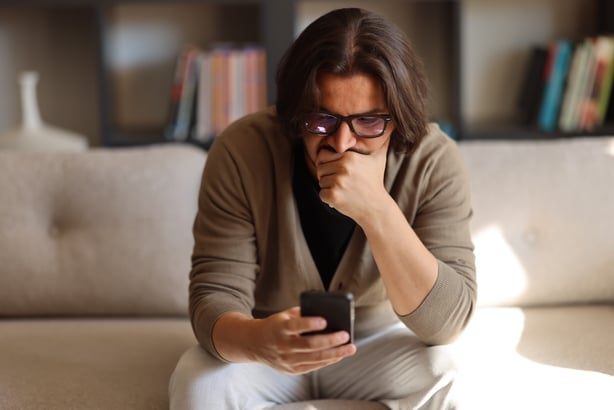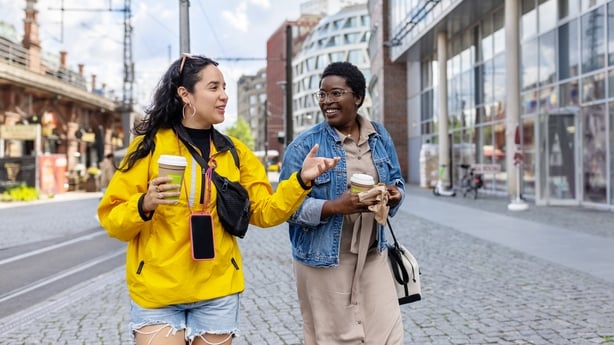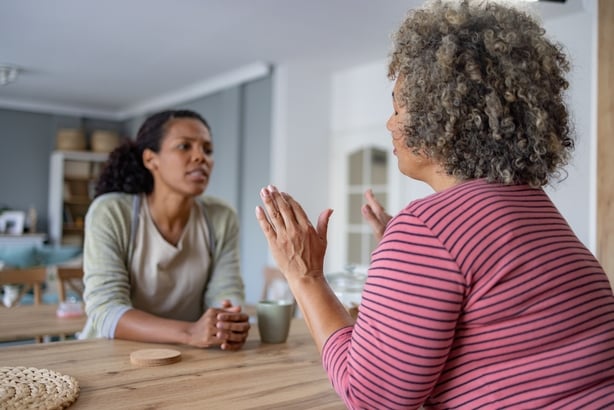When it comes to relationship break-ups, we know how to handle them: you vent to your friends, distract yourself with nights on the town or new hobbies, pledge to having a glow up or commit to spending some time alone.
With friendship break-ups, the playbook is less clear. How should you react if a close friend suddenly ghosts you, or demands more than you're willing or able to give?
Psychologist Padraig Walsh spoke to Laura Fox about how to handle friendship break-ups, communicating boundaries and whether having a 'best friend' puts pressure on that relationship?

Friendships are crucially important for our wellbeing, Walsh explained, noting that the World Health Organisation lists staying socially connected as one of the key ways to stay healthy. But thanks to the nature of friendships, he said, they can pose challenges that we're not always equipped to deal with.
So when a close friend suddenly cuts contact and stops answering your texts, should we approach it the same way we would a romantic relationship? Should you ask them why they ghosted you?
This depends on the type of friendship you had with them, Walsh said. "We have moved friendships from a very analogue space", he noted, explaining that up until 2018, data showed that people met friends through work, other friends or through a club or sports group. Now making friends happens more and more online.
"It's so much easier to just ignore somebody when they're in the digital world", Walsh said. "In real life, it's really difficult to ignore somebody when you're meeting them all the time."
Friendships, he added, are "not monogymous", unlike most romantic relationships. "We can have lots and lots of different friends and that has to be explicitly said because we all know certain people whose idea of friendship is very intense."

Walsh compares friendship to cooking on a stove: when he was a young man and learning to cook, he'd whack the heat all the way up to 10 every time. Sometimes, the assumption is that we need to treat our friendships the same.
"With friendships, sometimes the mistake we can make is we feel they need to be at 8, 9, 10 all the time, when actually there are friendships that we can move onto the simmer pot."
Circumstances can force your friendships to change, such as becoming a parent, moving abroad, changing jobs or simply changing as an individual. These are milestones that many of us will go through, so change is inevitable in friendships. However, Walsh said, that doesn't mean you have to abandon that friend.
In fact, making and maintaining friends needs more conscious effort as we get older, he said. "Our fruitful, most fertile period for making friends is our late teens, early 20s, all the time.
"When you have a partner, research says you lose three close friends. The time committed to the one means that on average two to three close friends get moved out.
"Think about friendship as a series of circles going out and out and out. There's some within your inner circle, there's about seven, eight that we naturally will have. Then outside of that there'll be 20, 25, 30. Then the rest are going to fill the tables at your wedding."
"That close circle gets smaller as you get older."

Sometimes you can go months or even years without a proper catch up with a friend and when you talk it's like no time has passed. Those friends, Walsh explained, are "aligned on your values", making the friendship feel "seamless".
As for whether you should have a "best friend", this can lead to a feeling of pressure for that person, Walsh said. "You start to get into ranking and, do you like me as much as I like you? And that's not really what friendship is about, it's not a competition."
Instead, he suggested thinking about who is in your top five friends.
So if a friend ghosts you, should you let the ghosting happen and put it down to shifting dynamics, or try to salvage it then and there? Walsh said it comes down to communication, and how comfortable that feels.
"Are you comfortable having a frank conversation with this person? Do I value their relationship? Perhaps they're feeling the exact same way."
Asking your friend if your friendship is worth saving can be the deciding factor. And oftentimes, Walsh said, that bond is worth saving.
If you have been affected by issues raised in this story, please visit: www.rte.ie/helplines.
